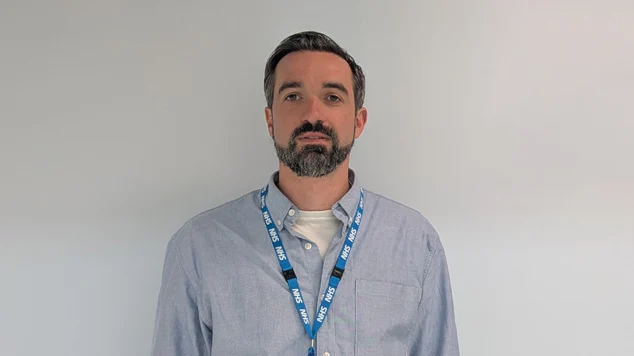Nolan Keep's experience
Head of Corporate Estate Programmes, NHS England
EGA Senior Leader Apprenticeship
The Elizabeth Garrett Anderson (EGA) Programme is an award-winning leadership development programme. It is designed for senior leaders and managers working in health and social care.
Since 2013, over 2,509 leaders have participated in the EGA standard pathway. The newly developed Senior Leader Apprenticeship Elizabeth Garrett Anderson, provides an alternative pathway - building on the success of the existing programme and incorporating the knowledge, skills and behaviours required for a senior leader apprenticeship award.
The two-year part-time Level 7 Apprenticeship is funded by the Apprenticeship Levy. The programme leads to a Masters (MSc) in Healthcare Leadership from The University of Manchester and NHS Leadership Academy Award in Senior Healthcare Leadership.
Want to know more?

This is not the kind of course you can just turn up and tick a box for. It requires an opening of your mind, change in your stance. It inspires you to be a better you.
Nolan's experience
Nolan Keep is Head of Corporate Estate Programmes at NHS England, overseeing estates across 47 sites nationally.
He joined the EGA Senior Leader Apprenticeship to grow as a leader and take the next step in his career. In this Q&A, he shares how the programme helped him develop his leadership style, gain confidence, and influence positive change across the organisation.
When I applied for the programme, I was the Regional Estate and Facilities Manager for NHS England, I wanted to develop my career and the opportunity of this development while I worked aligned with choices to make the next steps in my career path.
I manage a team and hope that by learning more about Leadership and Management this would benefit myself and my team to perform more effectively and efficiently.
Since I don't have a 'clinical' role, or directly deal with patients, I was concerned that parts of the course might be difficult to make relevant.
I was concerned about the amount of time needed to complete the studying, and also nervous about studying again after a long gap since university.
I was promoted twice while attending the programme. The course has allowed me to articulate myself well, and given me an understanding of more senior level thinking.
Most importantly, I now know how to use evidence and remind corporate services that the voice of the patient is always paramount.
The 'change curve', team objective settings and referencing in business cases are practical tools that guide me daily.
I constantly try to embody the leadership traits that we learned about and focus hard on delivering compassionate and inclusive leadership.
I am a more confident leader. My team have evidenced to me the change in my leadership and the benefits that it has brought them.
The internal promotions demonstrate my growth in a relatively short time. The networking opportunities with my fellow EGA colleagues has given me a much wider knowledge and understanding of the NHS.
My leadership skills and applying them to our team and wider stakeholders. I focus on bringing the patient back to the forefront of plans and wider impact.
Everyone in my organisation who has completed this course understands the need for compassionate and inclusive leadership and the benefits that this brings. Slowly but surely, this is influencing how all teams are being managed.
To do it. It will be a learning experience, but it is totally worth it.
It is not a course you can just turn up and tick a box. It requires an opening of your mind, change in your stance. It touches on so much, from how you should walk in a room or talk in a presentation to researching theories and documents. It inspires you to be a better you.
